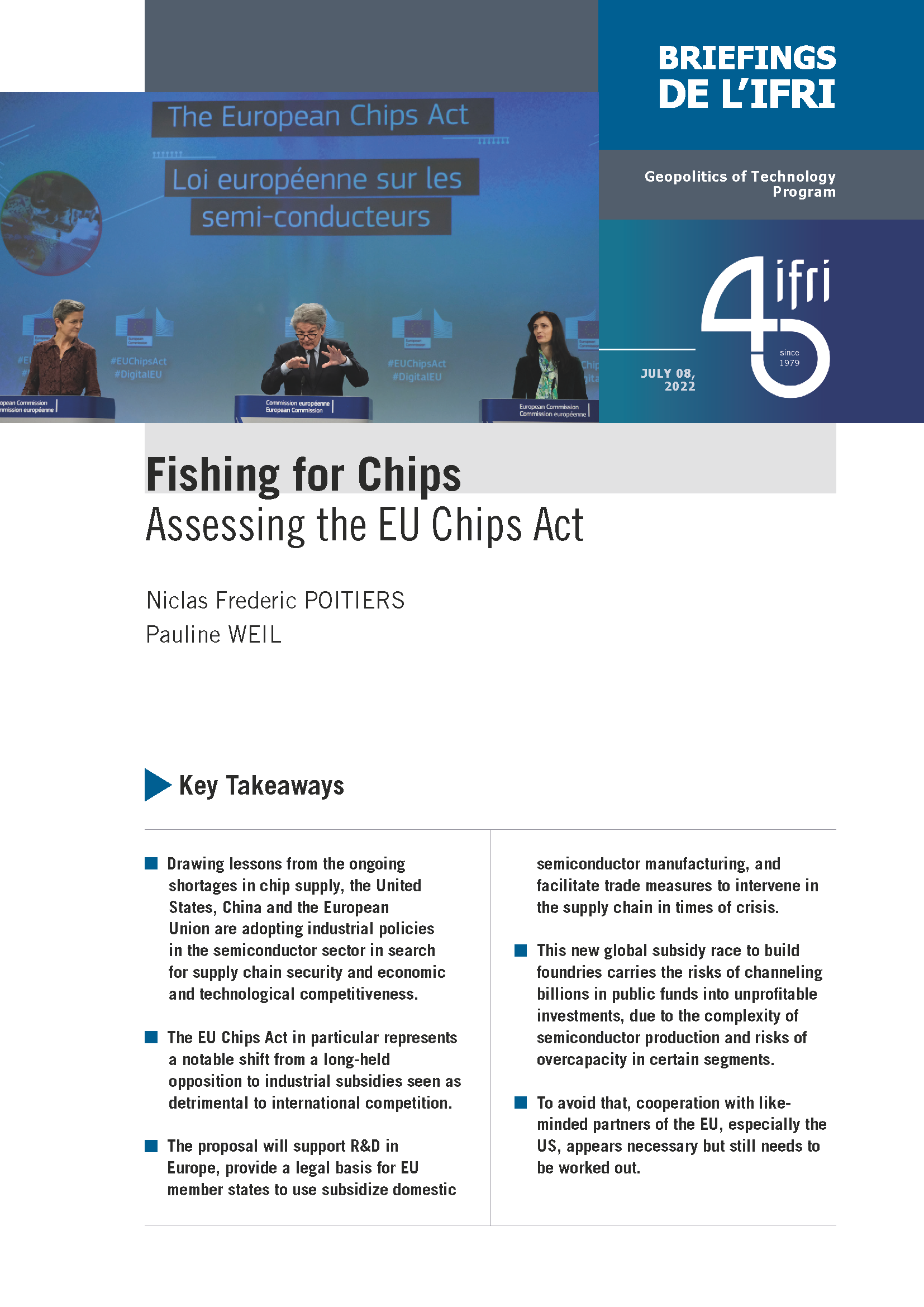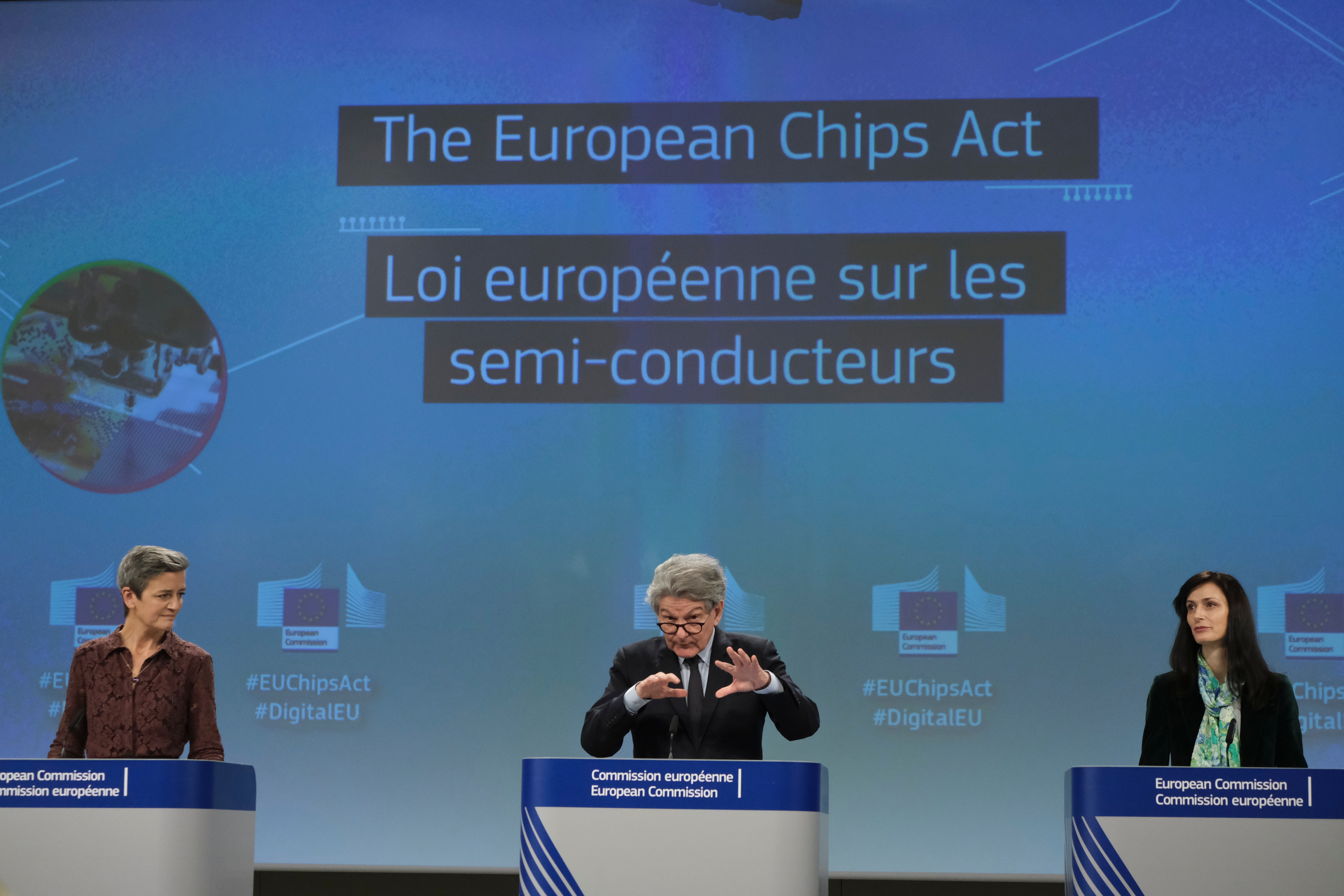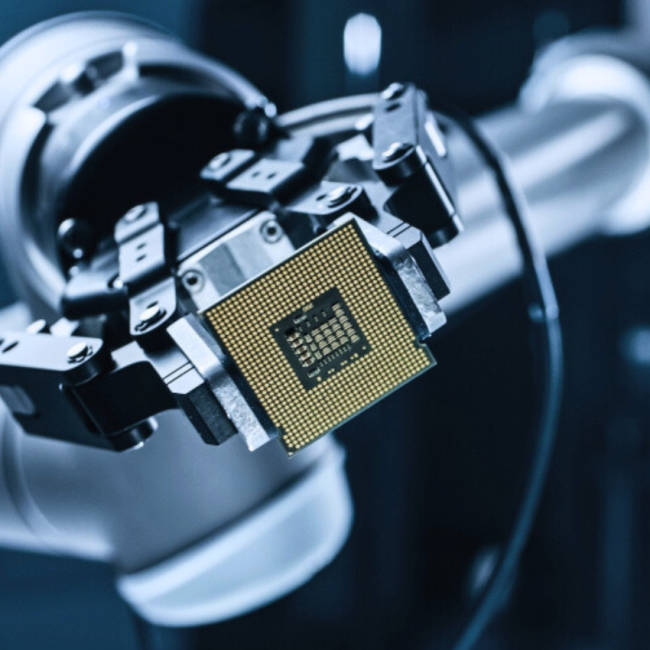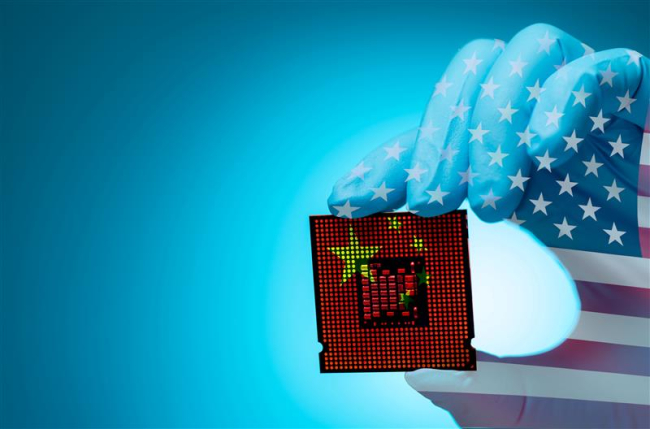Fishing for Chips: Assessing the EU Chips Act

China, the United States, and the European Union (EU) are currently developing strategies for semiconductors aimed at financing R&D and the installation of new factories on their territories, in particular through subsidies. The EU Chips Act, announced in February 2022, represents a real break in Europe's industrial policy.

Key Takeaways:
- Drawing lessons from the ongoing shortages in chip supply, the United States, China, and the European Union are adopting industrial policies in the semiconductor sector in search for supply chain security and economic and technological competitiveness.
- The EU Chips Act in particular represents a notable shift from a long-held opposition to industrial subsidies seen as detrimental to international competition.
- The proposal will support R&D in Europe, provide a legal basis for EU member states to use subsidize domestic semiconductor manufacturing, and facilitate trade measures to intervene in the supply chain in times of crisis.
- This new global subsidy race to build foundries carries the risks of channeling billions in public funds into unprofitable investments, due to the complexity of semiconductor production and risks of overcapacity in certain segments.
- To avoid that, cooperation with like-minded partners of the EU, especially the US, appears necessary but still needs to be worked out.
This briefing is available in two languages:
- in English : Fishing for Chips : Assessing the EU Chips Act
- In French : Marché aux puces : analyse de la loi européenne sur les semi-conducteurs

Available in:
Regions and themes
ISBN / ISSN
Share
Download the full analysis
This page contains only a summary of our work. If you would like to have access to all the information from our research on the subject, you can download the full version in PDF format.
Fishing for Chips: Assessing the EU Chips Act
Related centers and programs
Discover our other research centers and programsFind out more
Discover all our analysesArtificial Promises or Real Regulation? Inventing Global AI Governance
The risks inherent to the unregulated use of AI, a key technology and vector of profound transformations within societies underline the pressing need to harmonize governance efforts at the international level. The Summit for Action on Artificial Intelligence to be held in Paris in mid-February could be an unprecedented timely occasion to agree on a global governance framework of AI for the public good.
AI, Data Centers and Energy Demand: Reassessing and Exploring the Trends
The information and communication technologies sector today accounts for 9% of global electricity consumption, data centers for 1-1.3%, and artificial intelligence (AI) for less than 0.2%. The growing energy demands of cloud services first, and now AI workloads (10% of today’s data centers electricity demand), have exacerbated this trend. In the future, hyperscale data centers will gain shares amongst all kinds of data centers and AI will probably account for around 20% of data centers electricity demand by 2030.
From nonproliferation to strategic competition: US export controls and China
Technological competition is at the heart of the renewed great-power competition that has characterized relations between the USA and China since the 2010s. The role of technological innovation in the evolution of power relations is already recognized in the literature of international relations. However, developments in US technology policy under the last two administrations raise the reverse question: how does the perception of changing power relations (in this case, Chinese technological catch-up perceived as a threat to US leadership) transform policies granting or denying access to technological innovation?
China’s Mature Node Overcapacity: Unfounded Fears
China is decoupling from, not flooding, the global mature-node semiconductor market. As China increasingly pursues industrial policies encouraging domestic chip production, its own growing chip demand will prevent a direct flood of cheap Chinese chips on foreign shores. However, as Beijing achieves its goal of decreasing the reliance of domestic downstream manufacturers on foreign chips, European and American mature-node semiconductor companies will feel the ripple effects of an increasingly “involuted” Chinese chip ecosystem.








